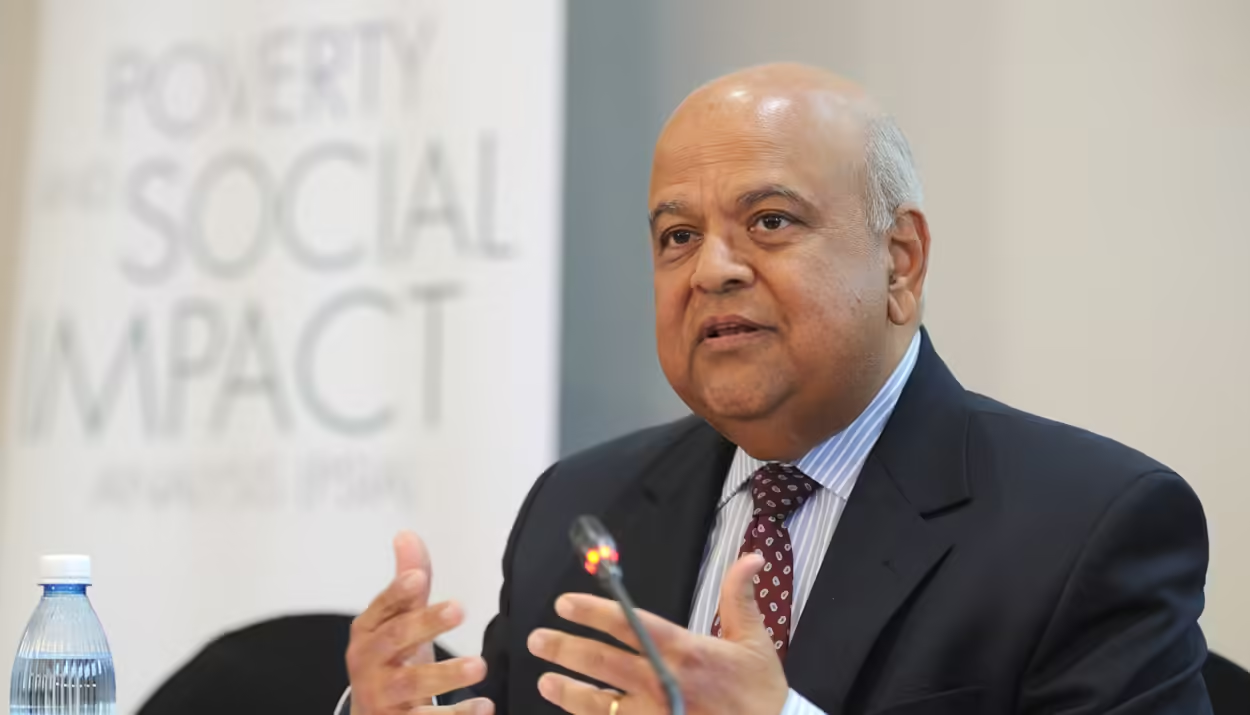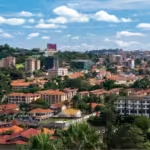Pravin Gordhan, former South African finance minister and anti-apartheid activist, passed away at 75 after a battle with cancer. His passing marks the end of a remarkable political career, spanning over four decades, during which he played a huge role in shaping South Africa’s economic and political landscape.
“Mr Gordhan passed away peacefully in hospital surrounded by his family, closest friends, and his long-time comrades in the liberation struggle in the early hours of this morning,” his family said in a statement.
President Cyril Ramaphosa paid tribute to Gordhan, calling him an “outstanding leader” and a champion in the fight against corruption.
ALSO READ: Cyril Ramaphosa – billionaire struggling to run a fractured South Africa
“We have lost an outstanding leader whose unassuming persona belied the depth of intellect, integrity and energy with which he undertook his activism, his duty as a parliamentarian and his roles as a member of Cabinet,” the head of state said.
Notably, a few months before his death, Gordhan reflected on his career with no regrets. In a farewell message before his retirement, he said, “I have no regrets, no regrets… We have made our contribution.”
Pravin Gordhan
Gordhan was born on April 12, 1949, in Durban, South Africa. His parents were traders who had immigrated from India in the 1920s.
A young Gordhan was raised in a racially segregated society during the peak of apartheid and was constantly exposed to the injustices of apartheid.
He attended Sastri College and later pursued pharmacy at Durban’s College for Indians.
His political activism began during his college years, when he joined anti-apartheid movements, quickly rising through the ranks of the United Democratic Front (UDF). He was detained and tortured several times for his activism but remained resolute in his fight against racial segregation.
Gordhan played a key role in negotiating the peaceful transition from apartheid to democracy. As co-chair of the Convention for a Democratic South Africa (Codesa), he helped draft the country’s new constitution and paved the way for South Africa’s first multiracial elections in 1994.
Career
After the fall of apartheid, Nelson Mandela was elected South Africa’s first president and Gordhan became a member of parliament in 1994 and soon became Deputy Commissioner of the South African Revenue Service (SARS).
In 1999, then-Finance Minister Trevor Manuel appointed Gordhan as SARS Commissioner, where he spearheaded a transformative overhaul of the national tax agency.
During his decade-long tenure, Gordhan modernized SARS, drawing over 1.5 million new taxpayers into the system and tripling government revenue. He is credited with turning the tax agency into a highly respected institution.
Gordhan was appointed finance minister in 2009, just as South Africa grappled with the aftermath of the global financial crisis. His fiscally conservative policies stabilized the economy and kept public spending in check. During his tenure, the economy grew by an average of 1.8% annually, earning the politician widespread respect.
Battle against corruption
However, Gordhan’s most notable legacy came from his fight against corruption during President Jacob Zuma’s administration. Gordhan repeatedly clashed with Zuma over the looting of state-owned enterprises, particularly during the period known as “State Capture,” where private entities had significant influence over public institutions.
Gordhan was a vocal critic of Zuma’s corrupt practices, often putting his career on the line to voice his dissatisfaction.
His most memorable clash with Zuma’s administration happened when he appeared at the Zondo Commission Inquiry of State Capture and laid bare the extent to which private interests, particularly the influential Gupta family, had compromised state institutions.
The politician pointed an accusing finger at Zuma who had denied any knowledge of state capture. However, Gordhan’s testimony estimated the loss of $36 billion due to corruption.
His stand eventually cost him his position as finance minister in 2017 when he was dismissed during a midnight cabinet reshuffle.
After Zuma’s resignation in 2018, Gordhan was appointed minister of public enterprises by President Cyril Ramaphosa. He was tasked with the daunting task of reforming and revamping struggling state-owned enterprises like power utility Eskom and the national airline South African Airways.
Unfortunately, it was not smooth sailing for the seasoned politician. Despite his efforts to overhaul their management and leadership, many of these entities continued to underperform, resulting in rolling blackouts and logistical bottlenecks that impacted the economy.
Gordhan retired from active politics in May 2024, just before the ANC lost its parliamentary majority for the first time since 1994. His departure marked the end of a remarkable political career that spanned decades.
Family
Pravin Gordhan is survived by his wife Vanitha, and his daughters Anisha and Priyesha.
Though Gordhan’s passing marks the end of an era, his legacy will continue to ring through South Africa’s political and economic landscapes for generations. His courage, integrity, and unwavering dedication to public service define an inspirational life that was well lived.






